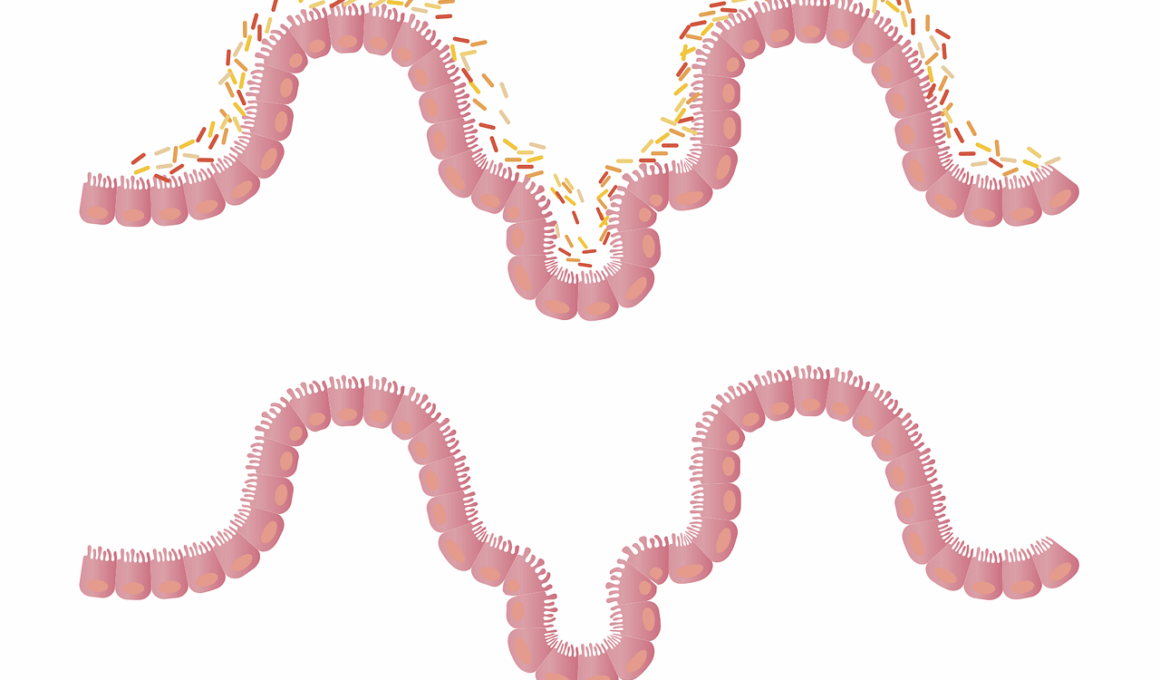Gut Health Tips for Stressful Times
Understanding the intricate relationship between stress and gut health is crucial for enhancing overall well-being. Stress can significantly disturb gut health, which can lead to a vicious cycle of anxious thoughts and physical discomfort. Incorporating a well-balanced diet rich in fiber, probiotics, and prebiotics can have a positive impact. Foods like yogurt, sauerkraut, and kefir provide beneficial cultures that promote a healthy gut microbiome. Moreover, vegetables and whole grains offer essential fiber that aids digestion and helps the gut function optimally. Staying hydrated is equally important, as water plays a vital role in nutrient absorption and digestion. Engaging in consistent physical activity can also remarkably improve gut health while reducing stress levels. Aim for activities like walking, cycling, or yoga, which not only promote fitness but also enhance mood. Mindful eating practices can also be an effective strategy to focus on nutritional choices and prevent emotional eating. Consider setting aside time to enjoy meals without distractions, as this can further improve digestion and emotional well-being.
Gut-Soothing Foods
In addressing stress and gut health, focusing on gut-soothing foods can be beneficial. Certain foods are known to alleviate stress while being gentler on the digestive system. Incorporating soothing elements like bananas, which provide potassium, or oatmeal, loaded with soluble fiber can make a significant difference. These foods promote stable blood sugar levels, aiding in overall mood regulation. Additionally, incorporating ginger can help reduce nausea and bloating. Some may find chamomile tea comforting; known for its calming effects, it can also soothe the digestive system. Turmeric with its active compound curcumin is an anti-inflammatory that can aid gut health further. Also, include avocados for their healthy fats, which are essential for brain function and overall health. Nuts and seeds offer a blend of magnesium and omega-3 fatty acids, both of which combat stress effectively. Furthermore, herbal supplements such as ashwagandha may support stress relief while being gentle on the stomach. As always, consult with a healthcare professional before beginning any new supplement regimen for tailored advice.
Stress can frequently trigger irregular digestive patterns, making it necessary to practice stress-reduction techniques alongside dietary changes. Techniques such as mindful breathing, meditation, and yoga have been shown to lessen stress effectively, promoting a healthier gut. Practicing gratitude can also shift focus from stressors to positive facets of life, creating an uplifting atmosphere. Establish a daily routine that includes a few minutes of meditation or deep breathing exercises to cultivate inner peace. This won’t just enhance mental clarity but can influence digestive health as well. Regular yoga sessions can work wonders for both stress reduction and gastrointestinal comfort, enabling individuals to focus on calming the mind and restoring balance. Engaging in creative activities such as painting, writing, or playing music can also shift focus from stress and help foster relaxation. Moreover, adequate sleep is paramount; prioritizing 7-9 hours of restorative sleep helps in gut recovery. Create a wind-down routine to signal the body for sleep each evening, such as minimizing screen time and engaging in calming activities. These holistic approaches can significantly contribute to improved gut health amidst life’s inevitable stressors.
Probiotics and Prebiotics
In the journey towards nurturing gut health during stressful times, consider utilizing probiotics and prebiotics strategically. Probiotics, live bacteria, are beneficial for gut flora and can alleviate stress-related digestive issues. Found in fermented foods, yogurt and kimchi are excellent sources. Regular consumption of these foods may support a balanced gut microbiome, enhancing resilience against stress. Meanwhile, prebiotics serve as food for these beneficial bacteria, found in foods like garlic, onions, and bananas. Incorporating both into your daily diet can strengthen the gut lining. Prebiotics help form a diverse gut microbiome, potentially combating the effects of stress. Additionally, they may improve mood through gut-brain signaling pathways. The synergy between probiotics and prebiotics helps maintain a healthy gut environment conducive for emotional and physical well-being. Make smooth combinations like kefir smoothies or sprinkle flaxseeds on salads to maximize benefits. Adding these items gradually and observing any changes in gut health can be a proactive step. Also, always remember to check labels for any additives that may interfere with digestion, ensuring choices align with your wellness goals.
Another effective approach to managing stress and improving gut health involves creating a balanced eating schedule. Irregular or erratic meal patterns can contribute to digestive problems and exacerbated stress levels. Aim to have meals at similar times each day and avoid skipping them. Prioritize adequate protein intake throughout the day; including lean chicken, fish, or plant-based sources helps regulate energy levels and feelings of fullness. Snacking on items like carrots, hummus, or a handful of nuts can sustain energy and keep cortisol levels stable. Moreover, minimize processed sugars and overeating, as they can lead to blood sugar spikes that adversely affect mood. Pay attention to portion sizes while being conscious of not eating while distracted. Establishing a serene eating environment is vital in fostering a mindful approach to meals. Listening to hunger cues and practicing moderation can effectively enhance digestive health and reduce overall stress. Alongside, consider engaging in supportive community activities, as social interactions can further improve mental well-being, ultimately benefiting gut health.
Incorporating Self-Care
Integrating self-care into daily routines can significantly alleviate stress while enhancing gut health. Self-care doesn’t just encompass physical health; it also addresses emotional and psychological well-being. Regularly taking time for yourself through hobbies or relaxation techniques could boost your mood, which in turn benefits the gut. For many, activities that spark joy or creativity serve as natural stress relievers. Engaging in social interactions with friends or family can provide an emotional outlet and reduce feelings of isolation. Incorporating practices like journaling or reflexive writing can elicit positive thoughts, aiding in stress reduction. A holistic approach mandating mental wellness can reinforce gut health as emotions influence digestion. Don’t hesitate to pamper yourself occasionally with spa days at home or taking long baths to relax completely. Mindful meditation sessions can also bring clarity and focus away from stressors. Incorporating diverse self-care practices will make a solid foundation not only for managing stress but also for maintaining a healthy gut by recognizing the mind-gut connection.
Finally, monitoring how certain foods and habits affect stress and gut health can be incredibly insightful. Keeping a food and mood journal allows one to track relationships between diet, emotional triggers, and digestive reactions. This practice can reveal patterns that might be contributing to stress or gut issues. Being aware of food intolerances or sensitivities can also guide dietary choices for better gut health. Opt for gradually eliminating potential irritants like gluten or dairy to see if digestive comfort improves. Being consistent in monitoring and logging can lead to improved well-being when awareness increases. Additionally, consulting with a nutritionist or therapist may provide personalized guidance tailored to individual needs. Together, these insights foster an understanding of the unique relationship between stress and gut health. Don’t hesitate to reach out to supportive communities for advice or resources, as these networks can serve as pillars of strength when facing stress. By taking informed action rooted in awareness, individuals can empower themselves towards maintaining optimal gut health, transforming negative habits into positive lifestyle choices.
Nurturing Support Systems
Finally, seeking support from friends, family, or counselors can be an invaluable part of managing stress effectively. Building strong, nurturing support systems not only enhances emotional resilience but also supports gut health during trying times. Feeling connected to others who understand your experience can mitigate feelings of anxiety. Sharing your thoughts and feelings within a trusted circle is vital for emotional health. Engaging in group activities that foster connection can contribute positively to one’s mental well-being. Volunteering or joining clubs that align with your hobbies can be social lifelines while focusing on wellness. These networks are essential for ensuring emotional expression and support, and they can be pivotal in fostering a resilient mindset. Such communities not only help in navigating stressors but can also offer personal insights on stress-management techniques. Remember that reaching out for help is not a sign of weakness; it’s a sign of strength. Exploring different avenues for support will help you learn effective coping strategies while maintaining your gut health throughout stressful phases. Prioritize nurturing social connections as they play a vital role in emotional and gut health.


